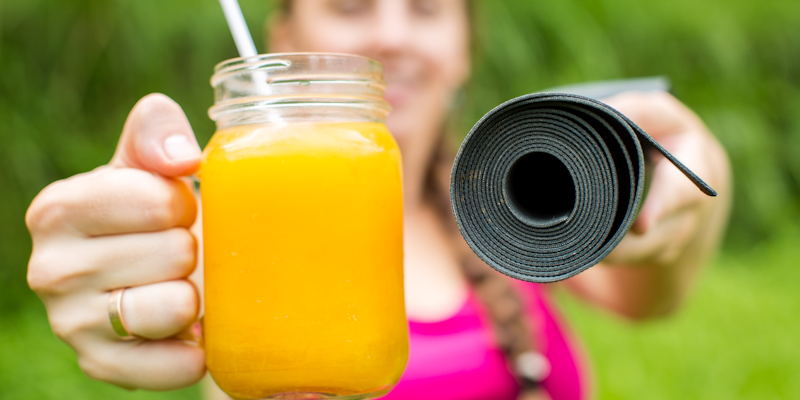Nutrition Tips for Exercising
Olympic fever is spreading quickly, and along with that comes the exercise bug – the feeling we get while watching our favorite Olympians compete in their respective sport. After all, who hasn’t been inspired to start a new exercise regimen, or change up an existing one, in hopes of getting into just as good of shape as an Olympic athlete? As all athletes, Olympians or not, will tell you, being in good shape isn’t accomplished just by exercise alone – having a healthy meal plan that is compatible with your exercise routine is just as important.
Here are some tips to help you get going:
- Do not skip breakfast! Breakfast is the most important meal of the day and your best energy booster – it will enhance your performance when exercising and help prevent the need for sugar fixes throughout the day.
- Consume an adequate amount of carbs! Despite what many think, carbs are not fattening. In fact, most of your energy comes from carbs. Make sure you choose the right types of carbs though (starchy foods instead of sugar).
- Dietary fat is necessary! Studies show that runners can perform better with healthy dietary fat (unsaturated fat), as long as they consume enough carbs and calories in their meals.
- Balance your protein! Too little protein can lower your iron intake, while too much protein can displace your carbs and can result in meals high in saturated fat and cholesterol. In general, an athletic adult should consume 0.5-.75 grams of protein per pound of weight. An adequate amount of protein will also help you build muscle mass.
- Watch the caffeine! Even though caffeine might make you feel like you are enhancing your performance, it may cause you to become nervous and have an upset stomach. Note that many energy drinks contain high amounts of caffeine. Urinary caffeine levels that are above 12 mg/ml are considered to be doping, and this can easily be reached by consuming eight cups of coffee – enhanced performance has been observed at levels even lower than this.
- To lose body fat, create a calorie deficit! You can do this by either consuming fewer calories or by exercising (since you burn calories when you exercise). People who are sick usually lose weight because they consumed fewer calories than usual, not because they exercised. It does not make sense to exercise, and then go have a high calorie meal because your workout made you hungry, as you will cancel out your exercise efforts.
- Be honest with yourself about what you are eating, and how much! This will help you reach your goals and achieve the success you are looking for!

